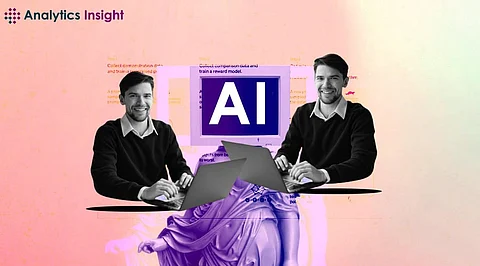

In today's data-driven world, the synergy between Big Data and AI has become increasingly vital for organizations looking to gain a competitive edge. Big Data, characterized by the massive volume, variety, and velocity of data generated, provides the raw material for AI algorithms to extract valuable insights and drive informed decision-making. Together, these two transformative technologies hold the potential to revolutionize industries across the globe. Let's delve deeper into how Big Data and AI work together and the strategies for unleashing their full potential.
1. Data Collection and Processing: Big Data encompasses vast amounts of structured and unstructured data from various sources, including social media, sensors, devices, and enterprise systems. AI algorithms, such as machine learning and deep learning, are then applied to analyze and interpret this data. Machine learning models, for instance, can identify patterns, trends, and anomalies within Big Data sets, enabling organizations to extract actionable insights.
2. Predictive Analytics and Forecasting: One of the key benefits of combining Big Data with AI is predictive analytics. By examining previous data and recognizing patterns, AI algorithms may accurately anticipate future trends and outcomes. This capability is invaluable for businesses in various sectors, including finance, healthcare, and retail, enabling them to anticipate customer behavior, market trends, and demand fluctuations.
3. Personalization and Customer Insights: AI-powered recommendation engines leverage Big Data to deliver personalized experiences to users. By analyzing user behavior, preferences, and interactions, these algorithms can recommend products, services, and content tailored to individual preferences. This level of personalization enhances customer satisfaction, drives engagement, and increases conversion rates, leading to improved business outcomes.
4. Operational Efficiency and Automation: AI-driven automation is revolutionizing operations across industries, streamlining processes, and improving efficiency. By analyzing Big Data in real-time, AI algorithms can optimize workflows, detect inefficiencies, and automate routine tasks. For example, in manufacturing, AI-enabled predictive maintenance analyzes equipment sensor data to identify potential failures before they occur, minimizing downtime and reducing maintenance costs.
5. Risk Management and Fraud Detection: In sectors such as finance and cybersecurity, Big Data and AI play a crucial role in risk management and fraud detection. AI algorithms can analyze vast amounts of transactional data to identify suspicious patterns and anomalies indicative of fraudulent activity. By leveraging real-time data analysis, organizations can mitigate risks, detect fraud in its early stages, and prevent financial losses.
6. Healthcare and Disease Diagnosis: In healthcare, the combination of Big Data and AI holds immense promise for disease diagnosis, treatment optimization, and personalized medicine. AI algorithms trained on large medical datasets can analyze patient data, genetic information, and medical images to assist clinicians in diagnosing diseases, predicting outcomes, and recommending tailored treatment plans. This method has the potential to transform healthcare delivery and enhance patient outcomes.
7. Environmental Sustainability and Resource Management: Big Data and AI are also driving innovations in environmental sustainability and resource management. By analyzing data from sensors, satellites, and environmental monitoring systems, AI algorithms can optimize energy consumption, reduce waste, and mitigate environmental risks. In agriculture, for example, AI-powered precision farming techniques evaluate data on soil conditions, weather patterns, and crop health to optimize irrigation, fertilization, and insect management, thereby increasing yields while minimizing environmental effects.
Join our WhatsApp Channel to get the latest news, exclusives and videos on WhatsApp
_____________
Disclaimer: Analytics Insight does not provide financial advice or guidance. Also note that the cryptocurrencies mentioned/listed on the website could potentially be scams, i.e. designed to induce you to invest financial resources that may be lost forever and not be recoverable once investments are made. You are responsible for conducting your own research (DYOR) before making any investments. Read more here.
